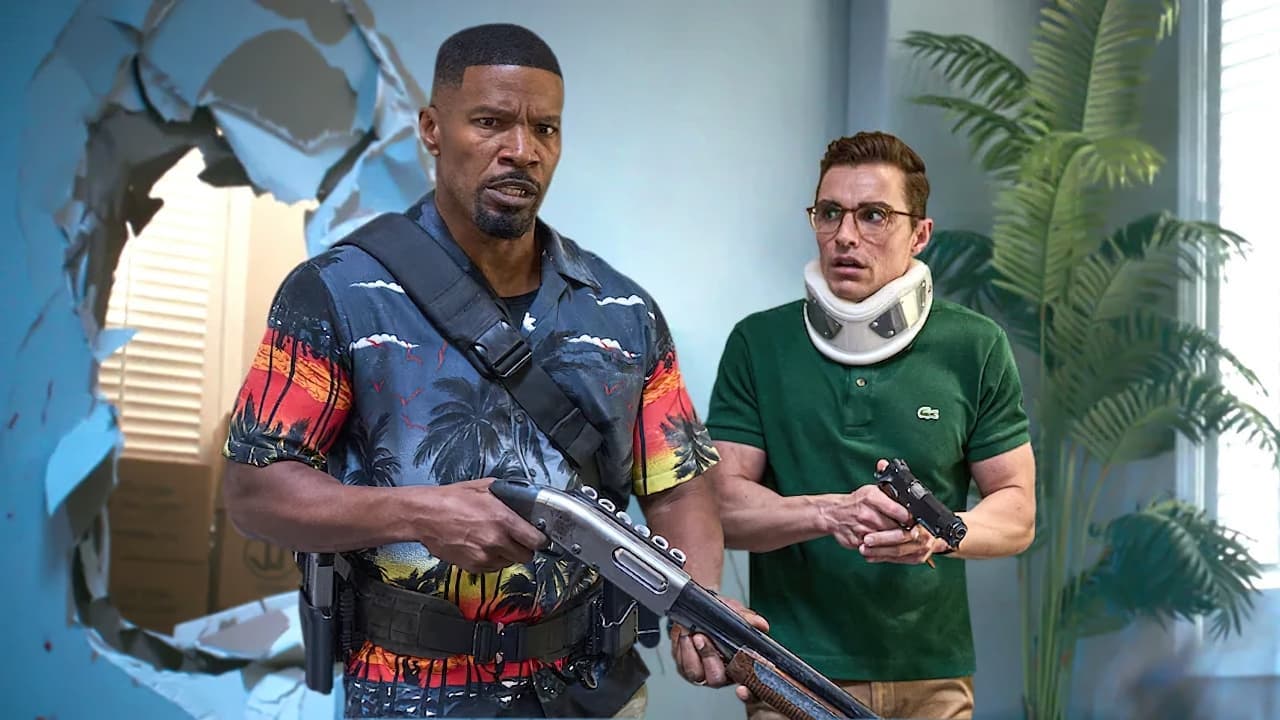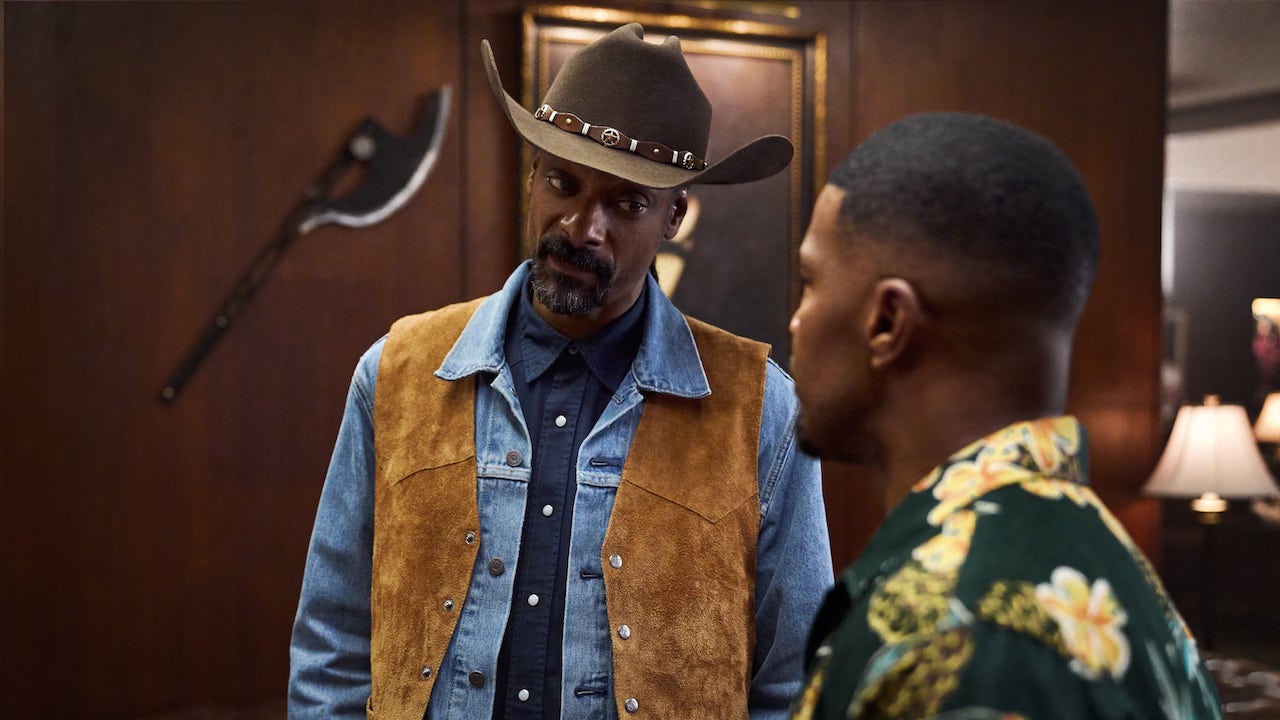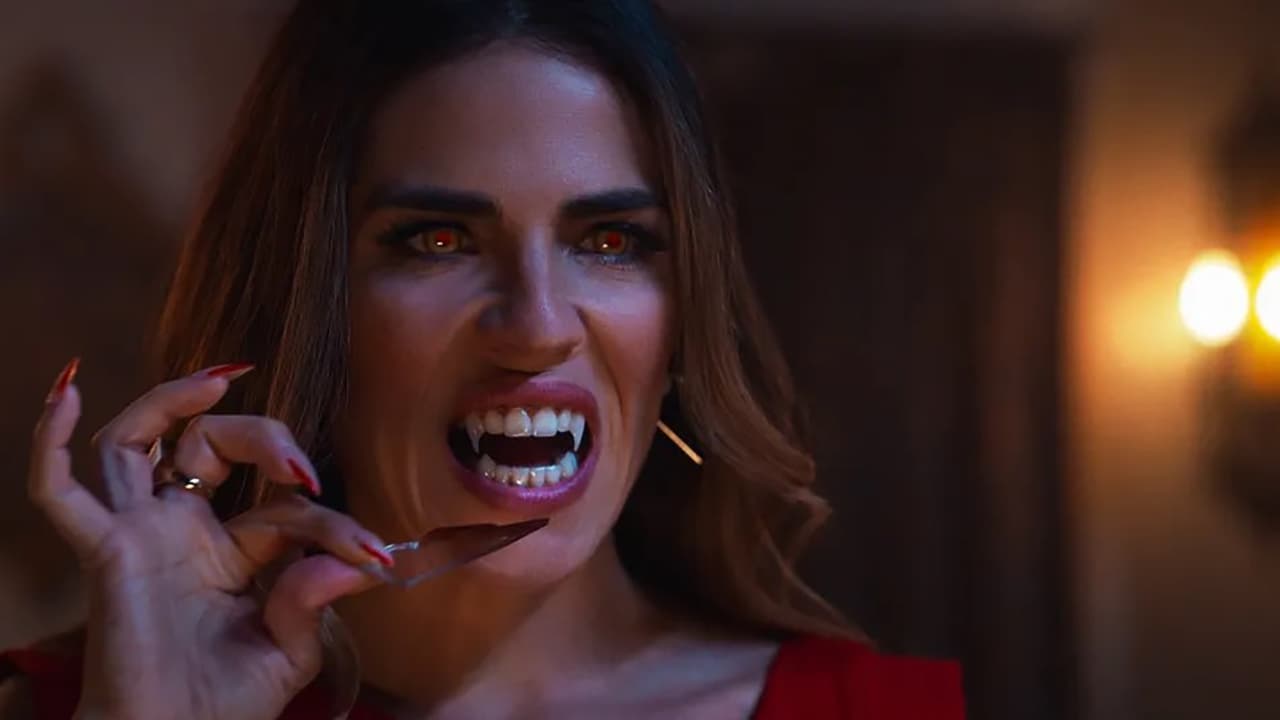Day Shift suggests that there’s no fresh way to vamp up vampires onscreen

A fanged hybrid of vampire horror, LA action, and so-so comedy, Netflix’s Day Shift can’t trade on Jamie Foxx’s charms to subvert or ascend its genre trappings. It made Eliza Janssen wonder whether vampires tropes have outlived their eternal life.
At the end of Netflix’s sun-soaked vampire action-comedy Day Shift, Snoop Dogg lights up an obligatory blunt and quotes from another, superior tale of Californian bloodsuckers: “that’s what I love about LA—all the damn vampires.”
Oh yeah, The Lost Boys—a movie that Netflix already tried to riff on last year with the Hollywood-set vampire horror Night Teeth. In fact, every other moment of Day Shift calls to mind a trope of vampirism that has already been subverted and sucked dry by countless other cinematic depictions of the critter first popularised in 1931’s Dracula. The things are famously hard to kill onscreen, and they’re not springing back to fresh life anytime either.
The directorial debut of J.J. Perry, this entertaining-enough action-horror has no choice but to directly mention its many, many predecessors. Namely in a scene where our protagonist, pool cleaner/slayer Bud (Jamie Foxx) and the desk-jockey bureaucrat he’s forced to ride with (Dave Franco), joke about the Twilight saga for a minute or two. At least the film isn’t inconsiderate enough to bore us with its specific mythology at length, content with rattling off some concerned dialogue about “Ubers”, “spiders”, “southerns” and “easterns”, apparently different vampire breeds that look disappointingly indistinguishable from one another.
To be fair to Day Shift, it’s bloody hard to think up something new and original in this undying, unkillable genre. Any of my best suggestions left me feeling like Butters in South Park, furious he can’t come up with an idea that better creators have already tried. Like ooh, what if we actually get to see the vampire’s plan to take over the world come to fruition? Nope. What if the film leant into the mythology of its ancient, vampiric Mexican baddie more? Done and done. What if Jamie Foxx gets bitten and has to avoid his own urges while killing his own kind? Come on now…

Foxx’s good-natured stunt work here makes me wonder whether he ever auditioned to play Blade, in fact. And as Bud’s inexplicably Southern mentor, Snoop Dogg seems to be playing a part intended for—or at least inspired by—Sam Elliott, hinted at by his name Big John Elliott. At least they and Franco are having a good time: elsewhere, the film’s female characters are not only poorly but barely written. Meagan Good’s arms are practically glued across her chest as Bud’s exasperated ex-wife, and Natasha Liu Bordizzo shows up for a thankless third act fight scene as a…familiar? Good vampire? The movie can be patronisingly expository when it wants to be, but I genuinely missed the explanation of why her character’s important or what she even is.
Day Shift’s best idea lies in its comic depiction of vampire slaying under capitalism: wrapped in red tape, with the price of freshly yanked vampire molars not what it used to be. We see Bud argue with his pawn dealer (Peter Stormare, firmly in his wheelhouse) over the value of the teeth he just risked his life for. He ultimately decides that the only way he can consistently pay his bills is by begging his way back into the petty slayer’s union.
Thing is, they require him to pay astronomic union dues, and to get supervised by Franco’s wimpy sidekick Seth (who pisses himself during every vampire encounter–“it’s kind of my thing”). From there we get to enjoy 40 minutes or so of buddy-cop, body-staking action, with other knucklehead slayers and Snoop Dogg stopping by to complain about inflation. Could’ve been cool for the film to end on Bud making the sad, very 2022 conclusion that pool cleaning is the more economically consistent gig—and if essential workers cough cough I mean skilled slayers like him surrender to burnout and system corruption, the rest of us are just blood bags waiting to get punctured.

A stronger story would’ve focused on the humour and tight, money-driven pacing of this element: the dirty work of having a very particular, dangerous skill set in LA’s exhausting gig economy. Instead the film’s second half falls into a predictable race to save Bud’s family from the big bad, who really should’ve been played by one of the ladies of Selling Sunset (Chrishelle babe, have a word with your agent). The very Netflix-y look of the whole thing doesn’t help us get away from these generic vibes, as Perry drenches every frame in an oppressive yellow filter to suggest the San Fernando valley’s smog of ozone.
In a streaming landscape where What We Do In The Shadows turns the creakiest vampire tropes into stellar comedy with each week’s new episode, Day Shift has a towering task in trying to make its villainous creatures of the night interesting, or funny, or original. It’s not the final nail in the coffin, though: there’ll surely be new filmmakers out there with truly ingenious perspectives to bring to this undead archetype.
Day Shift is not one of them, with familiar characters and themes that should be banished to the shadows of your mind by the time the sun rises on a new day.

















